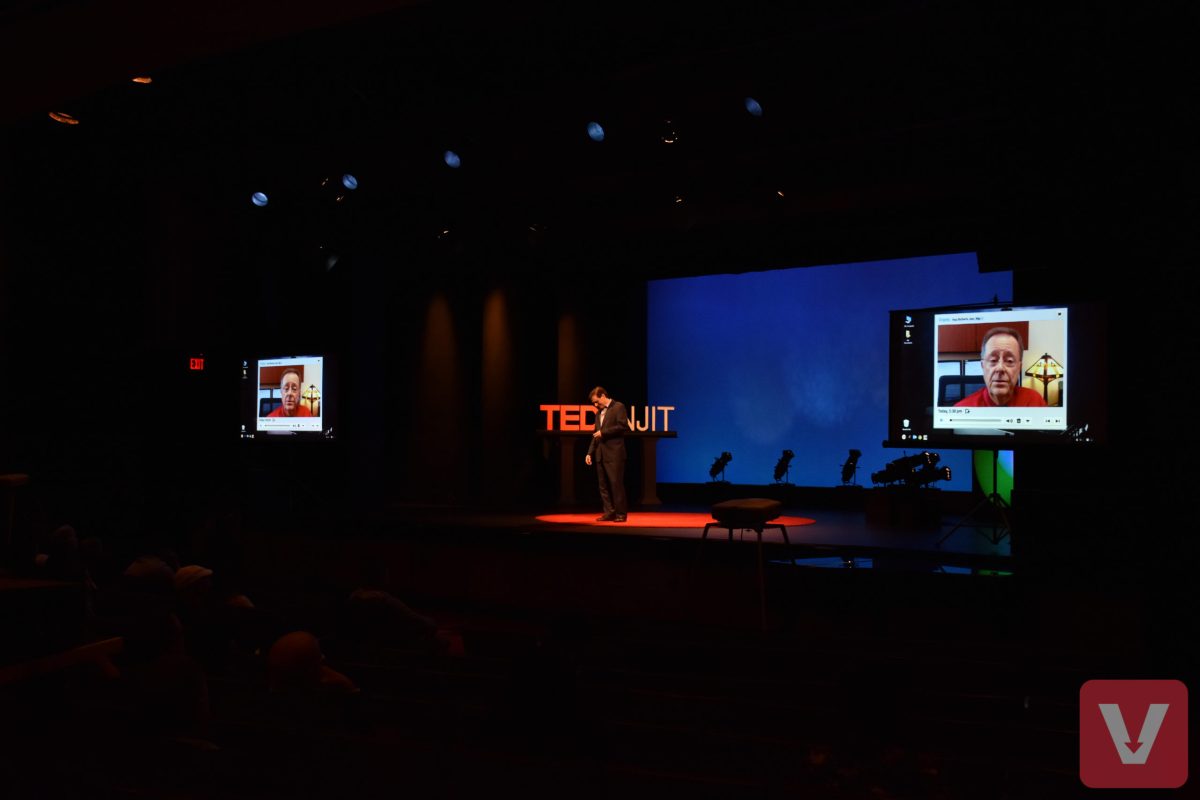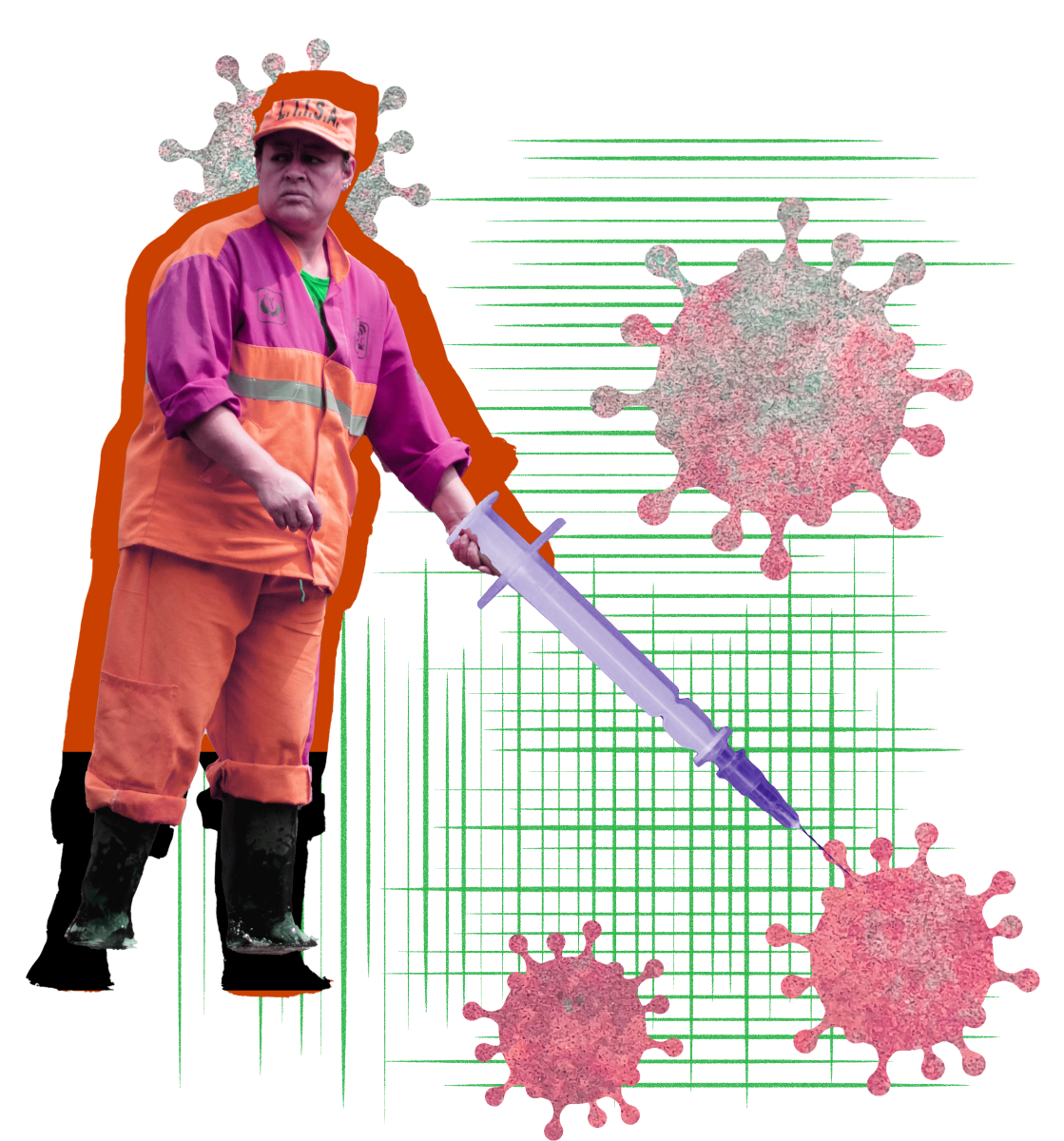Most people have watched a TED talk or two during their YouTube binges. But not everyone has the privilege of attending a TED talk, much less one that is tailored to their community. This is the purpose of TEDx events, which bring the innovation-sharing magic of TED talks to local communities. Last Wednesday, NJIT held a TEDx event in our Jim Wise Theater, which was open to NJIT students and the greater Newark community. Speakers came from backgrounds as diverse as grill sales to photography to health care. Though the speakers’ stories were eclectic, what they all had in common was that there was something to be learned through each story.
People came to the event with different expectations of what they would get out of the presentation. Sophomores Zaineb, Basim, and Amina came to see their professor, David Rothenberg, perform. They said it was “cool to have someone they know get recognized for their work”. Others, like graduate student Vineet came because of their own prior experiences presenting at TEDx events. Still, others came just in hopes of learning something new.
Some of the presenters were NJIT faculty, and the event allowed for an interesting opportunity to see professors in a new light. Dr. Tara Alvarez, director of the Biomedical Engineering Department, presented her work regarding convergence insufficiency syndrome, in which affected individuals struggle to focus on nearby objects. Dr. Alvarez likes to emphasize the importance of using a multidisciplinary approach when tackling problems, and describes her work in biomedical engineering as being the “culmination of collaboration and interdisciplinary research”: the people working with her on her research project come from fields as diverse as video game design, sports medicine, optometry, and psychology. Science, Technology, and Society Professor David Rothenberg talks to his students about the intersection of music and technology frequently in his classes. Students were able to actually see his ideas in action when he, student Kabir Mitra, and musician Matthew Aidekman presented an innovative mélange of tabla (an Indian drum) and clarinet, which allowed rhythm and sound to transcend cultural differences.
A few of the other speakers focused on how life lessons played a role in their business decisions. For example, avid cyclist Ron Gold suffered an accident that left him paralyzed from the waist down. Afterwards, he frequently asked the questions “Why me?” and “What are the odds?” However, Gold had an emotional turn-around when he saw himself as a survivor of a life-changing event rather than the victim of an unfair tragedy. He discovered that the home care system in America was seriously flawed. He decided that he would help others in similar situations by developing a more affordable, consumer-friendly system. Something beneficial and selfless came out of what many would consider horrific. At TEDx, Gold said, “I know I’m helping people, and that gives me purpose.”
Another individual who presented how he learned from times of adversity was Gerard Adams. Despite being a college dropout, he was a hard worker who built his own company. His road to success was not free of bumps, however; he faced several setbacks including the 2008 financial crisis. His company had fallen to shambles, but this was a valuable moment for him in that he discovered how egotistical he had become. In his speech, Adams admitted, “If you’re not failing, you’re doing something wrong.” Today, he still maintains his humble attitude and strong work ethic (which he calls “hustle”) and attains high success. He brings positivity and energy wherever he goes, which was evident when he evoked cheers from the TEDxNJIT audience.
One of the most important lessons of the night was that we all have something that we can give back to the community. Gallery Aferro founder Emma Wilcox and businessman Medina were clear paradigms of this. Emma Wilcox and her associates wanted to create a photo project in which they would take 350 photos of Newarkers to celebrate the city’s 350th anniversary. They ended up taking hundreds more pictures because they realized that their project meant something more: it was a time capsule of Newark’s people. Medina has dedicated himself to creating a place for POC (person-of-color) businesswomen through his venture Equal Space, which he has described as being a reflection of Newark. In truth, every speaker shared the message of giving back to the community through leading by example; by offering to speak to students and community members about their lives, ventures, and the lessons that they learned, the speakers encouraged us to pave our own way to make our mark. Speaker Mark Scotland preached that “global solutions begin with scalable projects implemented locally”. Through TEDx, ideas that have universal benefit are cultivated right at home.







































